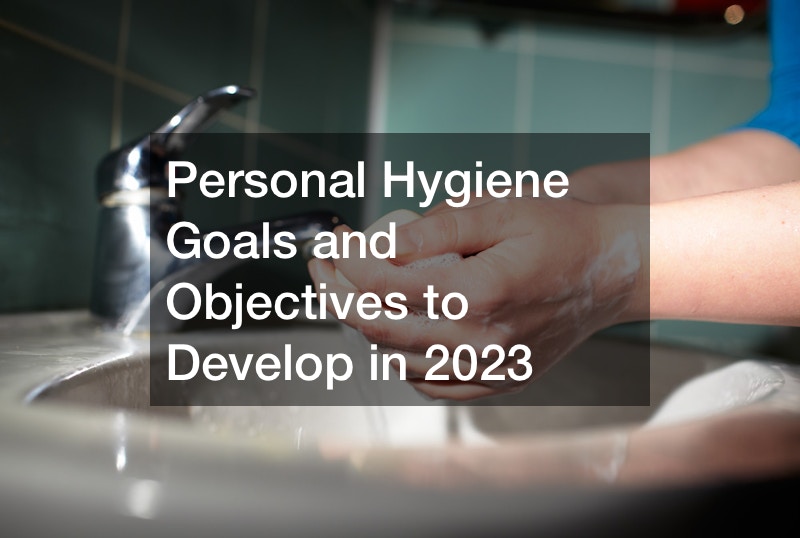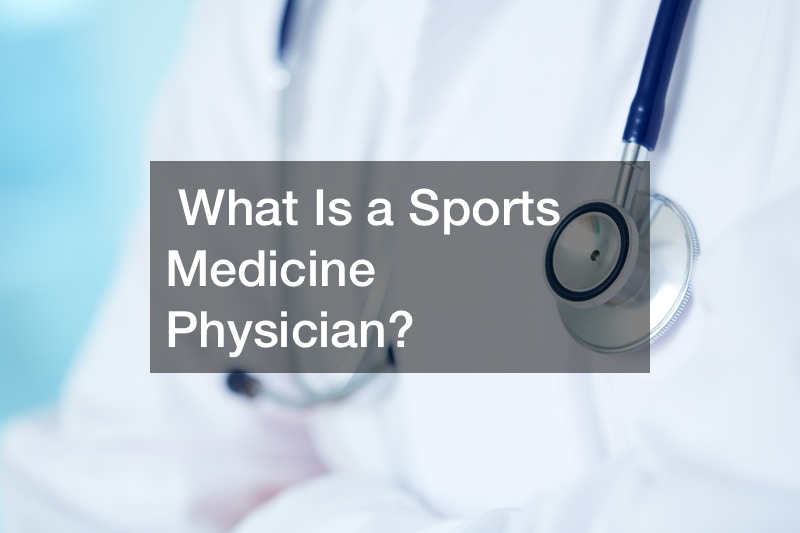
As we approach the second quarter of 2023, it’s a great time to think about your personal hygiene goals and objectives. You encounter millions of viruses and germs daily as you go about your business. They can stay on your body and potentially make you sick.
Good personal hygiene is key to promoting physical and mental health. On the other hand, poor personal hygiene creates an ideal environment for germs to thrive, leaving you vulnerable to infections. Here are seven personal hygiene goals and objectives to develop for the rest of 2023.
1. Prioritize Your Oral Health

As part of your personal hygiene goals and objectives, you should brush your teeth at least twice daily to remove plaque and bacteria and keep your teeth clean. However, brushing is only effective when you use the right techniques. Use small circular motions, reaching every tooth’s top, back, and front and avoiding sawing back-and-forth motions. Each brushing session should last between two and three minutes.
Vigorous brushing or using a toothbrush with tough bristles can damage your gums and the tooth enamel. The possible side effects include gum erosion, tooth sensitivity, and irreversible damage to the protective tooth enamel. The American Dental Association (ADA) advises using a soft-bristled brush. They also recommend changing your toothbrush every three months or when it starts looking frayed, whichever comes before.
Brushing alone won’t reach the spaces between your teeth. To get to these areas, you must use dental floss. Despite the absence of extensive research to support its benefits for dental care, the ADA still advises flossing.
The CDC also recommends that people floss their teeth. However, you need to use the right technique. Carefully guide the floss to the gumline before hugging the tooth’s side with up-and-down motions. Avoid snapping the floss up and down, as it can cause pain and isn’t effective at removing plaque.
You should visit your dentist every six months for a checkup. During routine visits, they’ll clean your teeth and remove hardened tartar and plaque. Your dentist will check for visible signs of mouth cancer, gum disease, cavities, and other dental health issues that may necessitate orthodontic treatments.
They may also employ dental X-rays to look for cavities. According to MedicalNewsToday, children and teenagers should visit the dentist every six months to prevent cavities. However, if you practice great dental health and aren’t at a high risk of dental health issues, you might be able to visit the dentist less frequently.
2. Drink Clean Water
Drinking clean water is also a great addition to your personal hygiene goals and objectives. The human body comprises organs, blood vessels, and soft tissue, but did you know that 60% of your body’s composition is water? It plays a key role in regulating several essential bodily functions, including temperature regulation, digestion, saliva production, vitamin and mineral absorption, and blood circulation. The pituitary gland regulates water levels and works with the kidneys to determine the amount of urine stored and expelled from the body.
When your body needs water, the brain triggers a reaction to make you feel thirsty. When this happens, the best thing to do is reach for a glass of clean drinking water. Health professionals generally advise consuming two liters of water daily. However, if you’re losing fluids through sweat due to high temperatures or exercising, you’ll need to increase the amount of water you consume to prevent dehydration.
Have you ever wondered why you feel tired or lethargic when you have a hungover and haven’t had a drink in a while? Water serves more purposes than merely quenching your thirst. It’s also essential for providing the energy necessary for muscular contraction. When your fluid balance is off, it can result in muscle fatigue and even muscle mass loss.
You won’t be able to perform at optimum levels if you try to exercise when you’re dehydrated. So whenever you’re working out or training for an upcoming sports event, pay close attention to how much water you consume. When you’re sweating heavily, and your heart is pumping, you’re losing fluid you need to replenish. Keep drinking water throughout your workouts and continue to top up your fluids afterward.
If you use well water in your home, install well water treatment systems to ensure your drinking water is clean and safe. Well water may contain viruses, harmful bacteria, and other contaminants that can make you sick. The treatment removes these impurities from the water to make it safe for consumption. There are several methods for well water treatment, including chlorination, filtration, and UV treatment.
A water purifier installation is also an effective way of ensuring you can always access clean drinking water in your home. These systems employ various technologies, such as reverse osmosis, activated carbon, and UV radiation, to remove impurities from water. They’re available in various sizes and styles, making finding one that fits your needs and budget easy. While installation is quite simple, working with professionals is always best.
3. Don’t Ignore Body or Tooth Pain

Ignoring tooth or body pain can have a detrimental effect on your physical health. Pain is the body’s way of communicating that something is wrong. You should pay attention to these signs and seek medical care if necessary.
Body pain can indicate a serious underlying condition such as arthritis, fibromyalgia, or cancer. If your doctor detects these issues in their early stages, you may be able to remedy them, but if left unchecked, they’ll only become more challenging to treat. In some cases, pain is a sign you’re doing too much physically, and ignoring it will lead to severe injuries such as sprains or stains. Chronic pain can also negatively impact your mental health and lead to anxiety, depression, and other mood disorders.
Tooth pain is often a sign of gum disease or tooth decay. These conditions can result in tooth loss and other dental health issues. Tooth discomfort can also signal a more serious issue like an infection or abscess, which can affect other body parts. Tooth pain can also lower your overall quality of life, making eating, speaking, or sleeping difficult.
If you have missing teeth, you can get dental bridges, but they’re not always ideal. Dental implants or other dental procedures may be more appropriate. However, these procedures are expensive and often not covered by insurance. Taking prompt action when you experience body or tooth pain can eliminate the need for these procedures and the associated cost.
Ignoring pain can also result in a never-ending cycle of pain and inflammation as your body tries to compensate by altering your movement patterns and posture. In some cases, ignoring pain can even be life-threatening. For instance, chest discomfort may indicate a serious cardiac issue such as a heart attack. If you experience chest pain or other symptoms such as shortness of breath, lightheadedness, or nausea, it is important to seek immediate medical attention.
4. Treat Your Ailments as They Develop
Treating ailments as they develop should also be part of your personal hygiene goals and objectives for 2023. Seek medical attention immediately if you experience symptoms or observe weird changes in your body. Ignoring them will worsen the issue, making it more challenging to treat. It can also cause long-term damage.
One area where this is particularly important is in respiratory health. Suppose you’re living with a condition such as chronic obstructive pulmonary disease. In that case, a pulmonary rehab center offer various services to improve tolerance, lung function, and overall quality of life. These facilities provide a team of medical specialists who collaborate to create individualized treatment plans for each patient.
Another illness where it’s important to address symptoms as they arise is heart valve disease. It typically presents symptoms such as chest pain, shortness of breath, or fatigue. This condition can lead to heart failure, but prompt medical attention can prevent the disease from worsening. Treatment options for valve disease include medication, surgical repair, or replacement.
Early intervention can also help you avoid more expensive and invasive procedures in the future. It’ll also eliminate the need for hospitalization and emergency room visits, which can be costly. Moreover, early treatment can prevent the condition from affecting other aspects of your health, thus, improving your quality of life.
Other than the physical benefits, addressing issues as they arise is essential for your mental health. Ignoring mental health issues like depression or anxiety can result in more serious problems, including social isolation, drug abuse, and suicide. Seeking treatment and support in the early stages can prevent these negative outcomes and improve your quality of life.
5. Stay Healthy Enough to Look After Yourself

Age-related changes affect many aspects of life, including the physical, mental, social, and emotional. Some of these changes are positive, while others are negative. The key is to maximize the good parts of aging while taking proactive measures to protect your health.
Staying physically active is a great addition to your personal hygiene goals and objectives. The more you exercise, the better your body will fight inflammation and infections. You don’t have to engage in strenuous activity. Low-impact exercises are just as effective.
Consider low-impact aerobics, swimming, walking, or biking. If possible, exercise for at least 20 to 30 minutes daily to meet the recommended weekly total of 150 minutes. You can strengthen your muscles further by engaging in yoga or weightlifting.
Certain supplements also promote a healthy immune system. However, always check with your doctor to be sure a supplement is safe for you, especially if you’re also taking prescription medicine. They may suggest calcium, vitamin B12, vitamin B6, or vitamin D.
Eating healthy can also help slow aging. Prioritize diets rich in lean meats, vegetables, and fruits to strengthen your immune system and shield you against contagious viruses and bacteria. Veggies and fruits are great sources of antioxidants. Antioxidants keep your body healthy and protect your cells from damage.
Avoid or limit consuming fatty and sugary foods as they can trigger inflammation and weaken your immune system. You should also limit your alcohol intake. Find out from your doctor how much alcohol is safe to consume daily or weekly. These steps will at least delay the need to start looking for assisted living facilities.
6. Care for a Pet
Caring for a pet should also be part of your personal hygiene goals and objectives. Caring for a pet offers both physical and emotional health benefits. Pets provide companionship, which can lower stress and enhance general mental health. These furry friends also encourage physical activity, which improves cardiovascular health and reduces the risk of obesity.
They can also help reduce blood pressure while boosting the immune system. Engaging in mentally stimulating activities such as obedience training is great for you and your pet. Training sessions can help establish trust and respect between the owner and pet, increasing happiness and contentment. Having a pet for a companion also improves social skills.
7. Be Sanitary

As part of your personal hygiene goals and objectives of 2023, prioritize maintaining a sanitary environment. Regular hand washing is a great place to start. Wash your hands for at least 20 seconds using soap and warm water, particularly before eating or preparing food, after using the restroom, and after blowing your nose, coughing, or sneezing. You should also keep your surfaces clean and disinfected, including doorknobs, light switches, and countertops.
A bleach and water solution is an effective disinfectant for killing germs. Another important aspect of being sanitary is observing proper food handling practices. Ensure your kitchen is clean and well-maintained, and you wash surfaces and utensils regularly. It’s also a good idea to set up a hand washing station.
Personal hygiene is simply looking after your body and keeping it clean. The key to maintaining a healthy mind and body is to develop and stick to a personal hygiene routine. Personal hygiene will positively impact your physical and mental health and social life. Use this read as a guide for personal hygiene goals and objectives for 2023.



